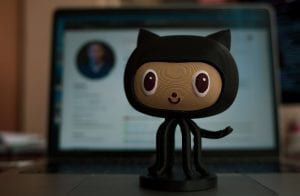By Craig Murdoch, Manager, Online & Open Initiatives, Auckland University of Technology Library
What if the products we choose to work with could help us become digitally dextrous?
At the Auckland University of Technology Library we’ve made a conscious decision to prefer open source software solutions where possible. We recently completed our implementation of the Koha library management system, adding this solution on top of VuFind for search and discovery, DSpace for our institutional repository Tuwhera and Open Journal Systems for our publishing initiatives. It’s fascinating to talk to people about why we’ve gone in this direction. The over-riding assumptions are that the main driver is either saving money, or because we have a fabulous pool of skilled staff who can ‘work’ these systems.
Of course it’s true that in some cases we have saved some money by going open source, but it is far from the primary motivation for us. In fact, the reasons we prefer open source are more about what it means for us as librarians, and I believe this ties in strongly with the goals of the Digital Dexterity framework for library professionals.
So, what benefits do we get as staff from working with open source technologies?
- We build capacity and capability in our staff. By taking ownership and control of our software solutions we can improve our own engagement and motivation. We learn new skills, we understand systems on a deeper level, we develop new abilities to communicate with those working in areas like IT, documentation, research, security, and data.

- We get to control our own destiny. Sounds dramatic but it’s true! We gain the flexibility to be able to decide what we want to do with our systems, what is important to us. We drive change rather than responding to it (or not seeing it at all). We get to try things, make mistakes, and most importantly, take ownership for fixing them.
- We get to work closely with a huge global community of librarians, software developers, and vendors to improve and extend the systems we use. When it comes to the development of new features we are partners, contributors, and sometimes even funders.
- We learn more about, and take more responsibility for, safeguarding our data and that of our institution’s members.
- We improve our decision-making, analysis and planning skills with respect to software development and spending (partly driven by the fact that we can no longer say “it’s the vendor’s fault”).
Where does this fit with the Digital Dexterity framework?
In a sense the answer is “Where doesn’t it?” but these are the words that jump out for me, because working with open source fosters growth in all these areas:
Confidence
To contribute meaningfully to complex discussions and broader communities.
Creativity
To courageously think outside the square and build our own future.
Collaboration
To work with generosity in a culture of sharing.
Capability
To build and enhance the skill sets we need.
Critical thinking
To support decisions which we must take increased responsibility for.
Which I think is a long way of saying that open source has created an environment where we are enabled to become better librarians, smarter humans, and more capable digital citizens. I’d love to hear whether this resonates with others.
Reference:
Katz, D. (2022, May 4). Open Perspectives: VuFind. https://communities.ebsco.com/posts/open-perspectives-vufind

